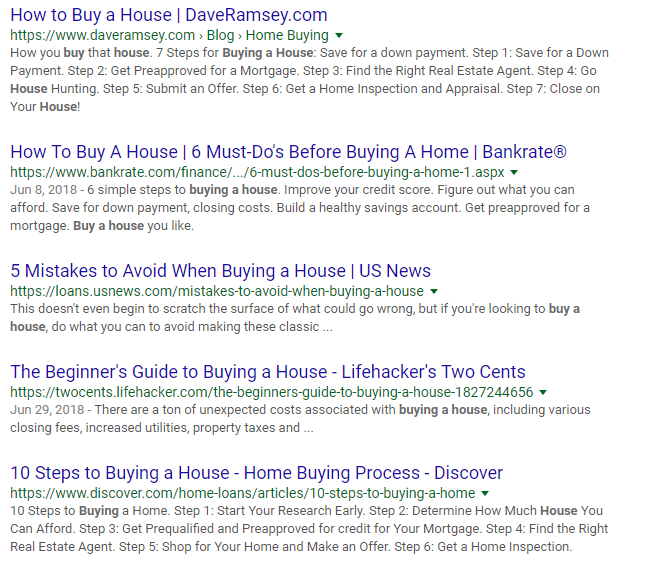Why Your Real Estate Blog Will Be Worth Money
Everybody has a real estate website, right? It seems like just about every agent on Earth picked up a Websitebox site at one point or another. Most agents probably have a couple sites. Maybe one or all are collecting dust. Most folks don’t think much about their website other than a means to an end – serving buyers and sellers. I’d wager most agents don’t think about their website as an asset – or even a complete business itself!
I have a little pet theory about the future of these sites.
One day, fairly soon, with a little elbow grease, your real estate blog is going to be worth money. Let me explain what I think that future looks like.
The Publishing Trend
The major trend in branding right now is publishing. Brands are becoming publishers, generating content on their topic.
That has always been the case in real estate, but not at a grand scale. The major real estate tech would-be disrupters like RedFin, Compass, OpenDoor, and Zillow do not have a strong presence in published content.
Go look at their sites. Is there information on your city? Your neighborhood? Your market? Local builders? Zillow has the Porchlight blog, but it does not have a lot of targeted local content.
Zillow doesn’t care that much, I imagine, because creating hyperlocal content at scale is very expensive with a small ROI.
But maybe it is also just a matter of time before the hyperlocal nature of real estate pushes them to start creating hyperlocal content. And because creating hyperlocal content is such a chore, why start from scratch when you can buy someone else’s content?
The Local Search Revolution
Put aside the publishing trend. There is another revolution that I think is right around the corner. I think local search is going to see a revolution in search.
It seems like everything has been written on everything under the sun. The consumer is oversaturated with too much content.
But that is not the case, and real estate agents and brokers are uniquely positioned next to the frontier of SEO – local search. I think there is a massive shortage of high-quality local content in local search results.
Look at the search results for “how to buy a home”, a highly competitive search result, yes?
The results are almost entirely from financial planning sites, a credit card company, and bank company that shares broad information on how to buy a home in America.
But buying a home is not the same in Killeen, TX versus San Francisco, CA. In fact, I would wager the consumer experience and opportunities in those markets are so vastly different as to be unrecognizable to each other.
What if the search engines recognized I want to know more about buying a home in Killeen, TX, and served that information first? That information would be far more useful and actionable to the search users’ intent. And let’s face it, there isn’t a lot of content oriented around “How to buy a home *in Killeen, TX*”.
Not only this, but this is a blind spot for Redfin and Zillow. They don’t have a lot of hyperlocal content, frankly. Sure, they have a lot of data, and maybe one day they will get better at distilling that data into information and insights. And AI will only get better at publishing quality content at scale. But until the data revolution comes (and I believe it is further away in real estate than some people would like to think), then there is a tremendous niche for hyperlocal content and brands.
I think future Google search algorithms will put far greater emphasis on local results, which will have massive ramifications hyperlocal content generators.
Will Zillow Buy Your Blog?
Probably not. Especially if it’s just a dinky thing you pay someone $20 per 300-word post.
But there is potential for those taking their sites. content, and audiences seriously.
First I would watch for the big portals to perhaps buy up local content publications like Curbed, perhaps. Such sites seem ideally suited to a monetization strategy aimed at home buyers and sellers.
Another way for the big companies to get into hyperlocal content without the headache is by offering affiliate programs. What if you had your real estate website with neighborhood pages, listings from the MLS, blog posts, and useful information, but instead of sending users to contact you, you sent them to Opendoor for a referral fee? Opendoor can’t create hyperlocal audiences and trust and content, so instead they rent yours.
Opendoor does not have any such program. I’m not aware of a major portal or tech player who does. But if I am right about the hyperlocal trend, then they very well might in the future.
This model is probably anathema to most agents today. Opendoor is the enemy! But while it may seem as though you’ve lost business, affiliate marketing can be extremely lucrative. You control the lead generation! You control the leverage!
Diversifying in an Uncertain Future
There’s a lot of talk about the iBuyer revolution, consolidation, and how in ten years there will be half the number of agents there are today. Is the future tech-enabled-agents, agent-enabled-tech, or just AI altogether? Are students getting their real estate licenses today setting themselves up for unemployment in half a generation?
I don’t know all the answers, but building an online presence and brand is one way to hedge against these uncertainties. Your website might just be worth more and more money in the future even while your brick and mortar real estate business is worth less and less.
Conclusion
If you haven’t already started a website or taken your blog seriously, get started with some of the most trusted website builders in real estate.
Tell me what you think – am I crazy?
I will be writing Part 2: How to Build a Real Estate Blog Worth Money soon!



